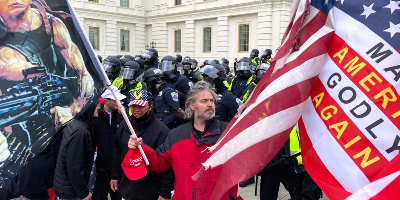7 nov 2014 - The Atlantic: The Hidden Author of Putinism How Vladislav Surkov invented the new Russia
Description:
==EXCERPT from the Atlantic story==“...Over the last 20 years we’ve lived through a communism we never believed in, democracy and defaults and mafia state and oligarchy, and we’ve realized they are illusions, that everything is PR.”
“Everything is PR” has become the favorite phrase of the new Russia; my Moscow peers were filled with a sense that they were both cynical and enlightened. When I asked them about Soviet-era dissidents, like my parents, who fought against communism, they dismissed them as naive dreamers and my own Western attachment to such vague notions as “human rights” and “freedom” as a blunder. “Can’t you see your own governments are just as bad as ours?” they asked me. I tried to protest—but they just smiled and pitied me. To believe in something and stand by it in this world is derided, the ability to be a shape-shifter celebrated.
“Everything is PR” is Russia's new catchphrase. Believing in something is derided, shape-shifting celebrated...."
....Vladimir Nabokov once described a species of butterfly that at an early stage in its development had to learn how to change colors to hide from predators. The butterfly’s predators had long died off, but still it changed its colors from the sheer pleasure of transformation. Something similar has happened to the Russian elites: During the Soviet period they learned to dissimulate in order to survive; now there is no need to constantly change their colors, but they continue to do so out of a sort of dark joy, conformism raised to the level of aesthetic act.
Surkov himself is the ultimate expression of this psychology. As I watched him give his speech to the students and journalists in London, he seemed to change and transform like mercury, from cherubic smile to demonic stare, from a woolly liberal preaching “modernization” to a finger-wagging nationalist, spitting out willfully contradictory ideas: “managed democracy,” “conservative modernization.” Then he stepped back, smiling, and said: “We need a new political party, and we should help it happen, no need to wait and make it form by itself.” And when you look closely at the party men in the political reality show Surkov directs, the spitting nationalists and beetroot-faced communists, you notice how they all seem to perform their roles with a little ironic twinkle.
Surkov likes to invoke the new postmodern texts just translated into Russian, the breakdown of grand narratives, the impossibility of truth, how everything is only “simulacrum” and “simulacra” ... and then in the next moment he says how he despises relativism and loves conservatism, before quoting Allen Ginsberg’s “Sunflower Sutra,” in English and by heart. If the West once undermined and helped to ultimately defeat the U.S.S.R. by uniting free-market economics, cool culture, and democratic politics into one package (parliaments, investment banks, and abstract expressionism fused to defeat the Politburo, planned economics, and social realism), Surkov’s genius has been to tear those associations apart, to marry authoritarianism and modern art, to use the language of rights and representation to validate tyranny, to recut and paste democratic capitalism until it means the reverse of its original purpose.
* * *
“It was the first non-linear war,” writes Surkov in a new short story, “Without Sky,” published under his pseudonym and set in a dystopian future after the “fifth world war”:
In the primitive wars of the 19th and 20th centuries it was common for just two sides to fight. Two countries. Two groups of allies. Now four coalitions collided. Not two against two, or three against one. No. All against all.
There is no mention of holy wars in Surkov’s vision, none of the cabaret used to provoke and tease the West. But there is a darkling vision of globalization, in which instead of everyone rising together, interconnection means multiple contests between movements and corporations and city-states—where the old alliances, the EUs and NATOs and “the West,” have all worn out, and where the Kremlin can play the new, fluctuating lines of loyalty and interest, the flows of oil and money, splitting Europe from America, pitting one Western company against another and against both their governments so no one knows whose interests are what and where they’re headed....
The Kremlin switches messages at will to its advantage, climbing inside everything: European right-wing nationalists are seduced with an anti-EU message; the Far Left is co-opted with tales of fighting U.S. hegemony; U.S. religious conservatives are convinced by the Kremlin’s fight against homosexuality. And the result is an array of voices, working away at global audiences from different angles, producing a cumulative echo chamber of Kremlin support, all broadcast on RT.
“Without Sky” was published on March 12, 2014. A few days later, Russia annexed Crimea. Surkov helped to organize the annexation, with his whole theater of Night Wolves, Cossacks, staged referendums, scripted puppet politicians, and men with guns. The Kremlin’s new useful allies, Right, Left, and Religious, all backed the president. There were no sanctions from the West that might have threatened economic ties with Russia. Only a few senior officials, including Surkov, were banned from traveling to or investing in the United States and European Union.
“Won’t this ban affect you?” a reporter asked Surkov as he passed through the Kremlin Palace. “Your tastes point to you being a very Western person.” Surkov smiled and pointed to his head: “I can fit Europe in here.” Later he announced: “I see the decision by the administration in Washington as an acknowledgment of my service to Russia. It’s a big honor for me. I don’t have accounts abroad. The only things that interest me in the U.S. are Tupac Shakur, Allen Ginsberg, and Jackson Pollock. I don’t need a visa to access their work. I lose nothing.”
Ajouté au bande de temps:
Date:
7 nov 2014
Maintenaint
~ Il y a 10 ans
